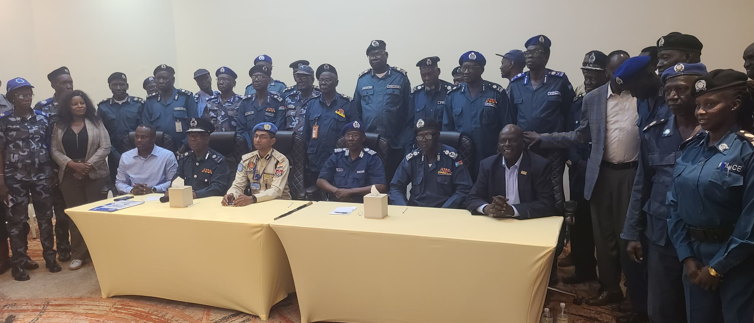The Deputy Police Commissioner of the United Nations Mission in South Sudan (UNMISS), Kaustubh Sharma, has emphasized the urgent need for South Sudan to advance toward democracy by ensuring that the anticipated 2026 general elections are conducted freely and fairly.
Speaking during a three-day capacity-building workshop on child protection for senior police officers in Juba, Sharma highlighted that credible elections are the cornerstone of legitimate governance.
“As the saying goes, the future belongs to those who prepare for it today. While South Sudan has been preparing for elections for quite some time, repeated delays have hindered progress. Nevertheless, it is essential that the country moves forward. In a democracy, legitimacy stems from the people electing their leaders—leaders who truly represent their will,” Sharma said. “So, without elections, the legitimacy, you never know whether the government in power is the one that is being sought by the people or being approved by the leaders. This workshop will be a testament to our collective foresight in safeguarding that future, especially of our children.”
He further underscored the broader importance of the workshop, describing it as part of a shared commitment to securing South Sudan’s future, particularly for its children.
“This workshop stands as a testament to our collective foresight in safeguarding the future of South Sudan, especially for the younger generation,” he added.
The statement comes at a time when national and international actors are urging South Sudanese authorities to uphold their commitment to holding timely and transparent elections in 2026, as a critical step toward lasting peace and democratic governance.
Sharma noted that the police training, which focuses on monitoring and reporting grave violations against children, will also pave the way for the 2026 elections in terms of ensuring a safe environment for the elections.
He further reiterated UNMISS’s commitment to supporting the government in the conduct of elections next year.
“Just early this month, the UN Security Council renewed UNMISS’s mandate and again underscored the unwavering international commitment to peace and security in South Sudan, especially from across the state,” Sharma said. “This workshop stands as powerful evidence of UNMISS ensuring commitment to the protection of civilians, which is one of the main tasks given to UNMISS. I mean, other than that, we are supporting the government in making or preparing for elections, in improving the system of the rule of law.”
On 13 September 2024, South Sudan’s transitional government announced a two-year extension of the transitional period, pushing the national elections to 22 December 2026. This decision was made to allow more time to complete critical tasks such as drafting a permanent constitution, conducting a national census, and registering political parties.
The extension has drawn criticism from both civil society organizations and international peace guarantors, including the United States, the United Kingdom, and Norway, who expressed disappointment over the delay. They emphasized that elections are essential for sustained peace and urged the South Sudanese government to adhere to the 2018 peace agreement.
Ter Manyang, executive director of the Center for Peace and Advocacy (CPA), cast doubts on whether the country will be able to conduct elections as scheduled. He said the ongoing tensions between the government and the Sudan People’s Liberation Movement in Opposition (SPLM-IO) will jeopardize the little peace attained and also cause a lack of trust.
“I am not optimistic that elections will be conducted in December 2026 unless there is a miracle,” he said.
The civil society activist noted the fact that some parts of
Presentations at the three-day training include sessions on understanding the six grave violations, recruitment of and use of children; killing and maiming of children, Rape and other forms of sexual violence.
Other topics also include impacts of elections on children’s rights and welfare, as well as attacks on and occupation of schools and denial of humanitarian access, among others.




